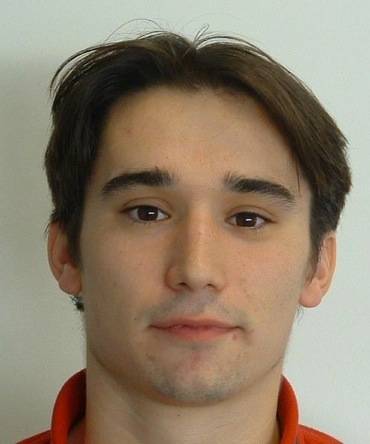MARC JUBEAU
Associate professor, University of Nantes (France)
09/2010 – 08/2011 – Saint-Etienne & Grenoble, France
Central fatigue assessed by transcranial magnetic stimulation during prolonged cycling exercise in hypoxia and normoxia (Principal Supervisor- Cosupervisor: Dr Samuel Vergès)

Biography

Dr. Marc Jubeau, PhD (University of Burgundy, 2006), is now an Associate Professor at the University of Nantes (France) since 2011. From 2006 to 2011, he held various academic positions in Australia (Perth University, collaboration with Professor Nosaka) and France (Dijon, Grenoble, Saint-Etienne and Marseille), including a 1-year full-time research contract (CERVOX Project) as a post-doctoral fellow at the University of Saint-Etienne under the supervision of Prof Millet and Dr Vergès. CERVOX was dedicated to investigate the effects of prolonged exercise in hypoxia on the neurophysiological mechanisms.
In June 2020, Marc had published over 65 journal articles (cited > 1300 times), his H index was 22. He has supervised ~10 postdoctoral or Graduate students.
His general research area investigates the physiological and neurophysiological factors associated with fatigue and muscle damage and their effects on performance. In particular, his work is dedicated to understanding the neurophysiological mechanisms associated with eccentric contractions. He also developed some works focusing on the effects of physical and mental fatigue on sport performance such as racket sports.
Main results of the work we have done together
The main results of the work (CERVOX project) we conducted with Prof Millet and others colleagues (especially Dr Vergès, Dr. Rupp and Prof Perrey) are:
- Prolonged cycling exercise induces a significant reduction in cortical voluntary activation, partly due to a deficit at the cortical level accompanied by increased corticospinal excitability. Our results highlight that changes at the cortical and/or motoneuronal levels depend not only on the type of exercise (single-joint vs. whole-body) but also on exercise intensity and/or duration
- When performed at the same relative low intensity, prolonged exercise does not induce greater supraspinal fatigue in hypoxia compared to normoxia. Despite lower absolute exercise intensities in hypoxia, reduced brain 02 availability might contribute to similar amounts of central fatigue compared with normoxia.
Main publications associated with this work
Marc Jubeau, Thomas Rupp, Stephane Perrey, John Temesi, Bernard Wuyam, Patrick Levy, Samuel Verges, Guillaume Y Millet. Changes in voluntary activation assessed by transcranial magnetic stimulation during prolonged cycling exercise. PLoS One. 2014 Feb 21.
Marc Jubeau, Thomas Rupp, John Temesi, Stéphane Perrey, Bernard Wuyam, Guillaume Y Millet, Samuel Verges. Neuromuscular Fatigue during Prolonged Exercise in Hypoxia. Med Sci Sports Exerc. 2017 Mar.
Thomas Rupp, Marc Jubeau, Bernard Wuyam, Stéphane Perrey, Patrick Levy, Guillaume Y Millet, Samuel Verges. Time-dependent effect of acute hypoxia on corticospinal excitability in healthy humans. J Neurophysiol. 2012 Sep.
